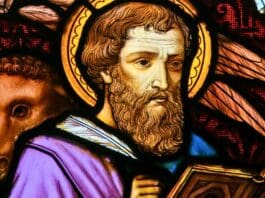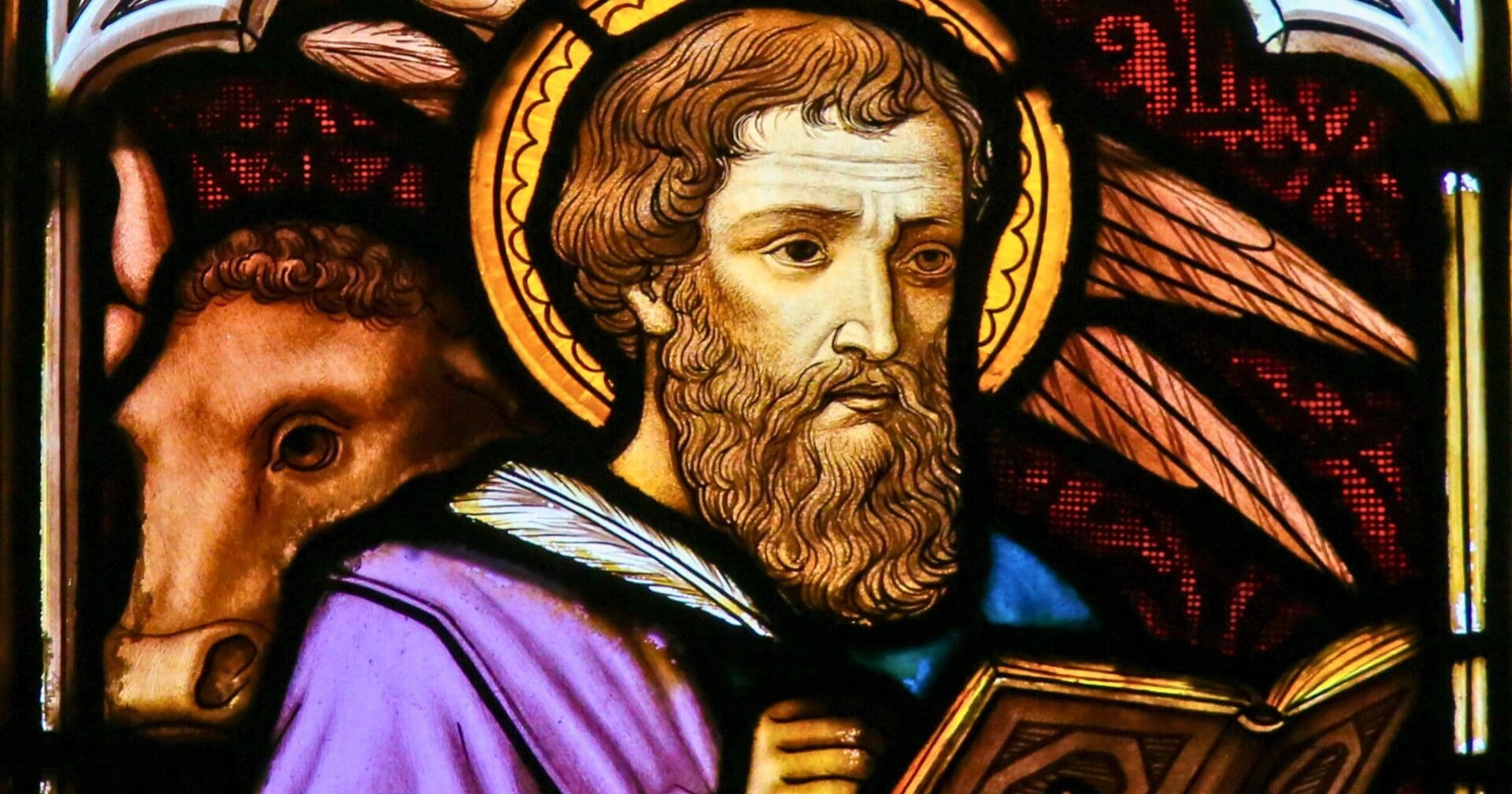
St. Luke, with a Latin origin to his name, is believed not to be of Jewish descent. Early records depict him as a Syrian from Antioch, which aligns with his deep knowledge of the Antiochean Church and his adeptness in literary Greek showcased in his writings. He is traditionally recognized, and as mentioned in St. Paul’s text (Colossians 4:14), as a physician. St. Luke’s Gospel stands out in the New Testament for its Greek literary finesse, reminiscent of celebrated writers like Xenophon.
It’s likely that St. Luke’s introduction to Jesus’ disciples came post Jesus’ demise in the early 1st century’s 30s. His Gospel hints at a unique familiarity with Mary, Jesus’ mother, and he’s often described as an associate of St. Paul and St. Mark in tradition. Around 49 A.D., during St. Paul’s second missionary journey, St. Luke partnered with him, starting at Troas and later journeying to Macedonia (Acts 16: 11-12). Luke possibly stayed in Philippi and later reunited with St. Paul at the end of his third missionary journey en route to Jerusalem (Acts 20:5, 26:18).
The Acts chronicle St. Luke accompanying St. Paul to Rome when the latter was imprisoned awaiting Caesar’s judgment (Acts 27:1, 28:26). Subsequent letters from St. Paul to Philemon (24) and Timothy (II, 4:11) suggest that St. Luke was by St. Paul’s side until his last moments. An ancient document, the Anti-Marcionite Prologue, reveals St. Luke passed away as a bachelor in either Boeotia or Bithynia around the late 1st century at age 84.
The Third Gospel’s ascription to St. Luke hasn’t faced notable challenges, and similarly, the Acts of the Apostles is widely accepted as his work. While his Gospel shares similarities in content and structure with those of St. Mark and St. Matthew due to a shared source, St. Luke had an additional, exclusive source. Some scholars hypothesize this unique source to be Mary, Jesus’ mother, and her close circle.
St. Luke contextualizes Jesus’ life within a three-part historical framework, placing Jesus at the core, flanked by the era of the Law and the Prophets and the advent of the Christian Church. Academic consensus places the crafting of St. Luke’s Gospel between 70 and 80 A.D., with indications that it was written outside of Palestine, primarily for a non-Jewish audience.
Editorial credit: jorisvo / Shutterstock.com
The post Saint Luke appeared first on uCatholic.
Daily Reading
Memorial of Saints Basil the Great and Gregory Nazianzen, Bishops and Doctors of the Church
Readings for the Memorial of Saints Basil the Great and Gregory Nazianzen, Bishops and Doctors of the Church Reading 1 1 John 2:22-28 Beloved: Who is the liar? Whoever denies…
Daily Meditation
A Voice in Today’s WildernessUna voz en la jungla de hoy día
Click here for daily readings Today’s Gospel passage is especially relevant as we begin a new year with resolutions and hope. In this reading we hear John’s declaration echoing the…




